Nothing Is Wasted: The Story Of Tsi
What drives you to do what you do? Where do your passions come from? What situations have you endured that have become a part of “your story” and have been redeemed to help others? We all have them. As Richard Rohr has said, “Nothing is wasted.” That is certainly true of Tsi, a fourteen-year-old girl we met on our third day in Ethiopia. World Vision wanted us to meet her because she has an inspirational story of survival and rescue, and also because they wanted us to see, first hand, what World Vision is doing to save lives.
Tsi, a beautiful teenager, (not unlike one of my own five daughters) is being raised by her mother and grandmother. Her father tragically died several years ago. When he died, the little girl begged her grandmother, “Please don’t give me to somebody else. Please don’t arrange a marriage for me.” The grandmother told Tsi, “Please be strong. Attend school. Do your best. Although your father is not alive, I will protect you.” This was her solemn promise.
A year ago, when Tsi was 13, she left home at 7 a.m. to walk to school. She had an hour walk ahead of her. While on the journey, five armed gunmen caught her, pulled her to the ground, beat her terribly, tore her clothes, threw away her shoes and raped her.
She screamed, but no one came to her rescue. The men forced her to travel two eight-hour days, barefoot, through rocky, dangerous desert ground. They took her to a narrow mud hut, and locked her inside. She was held prisoner there for forty days and nights, unable to see daylight. The leader would feed her a piece of Enjera (Ethiopian-style bread) a day through a window. He and his friends would visit her at night to rape her. She lost all hope of ever being set free and seeing her family again.
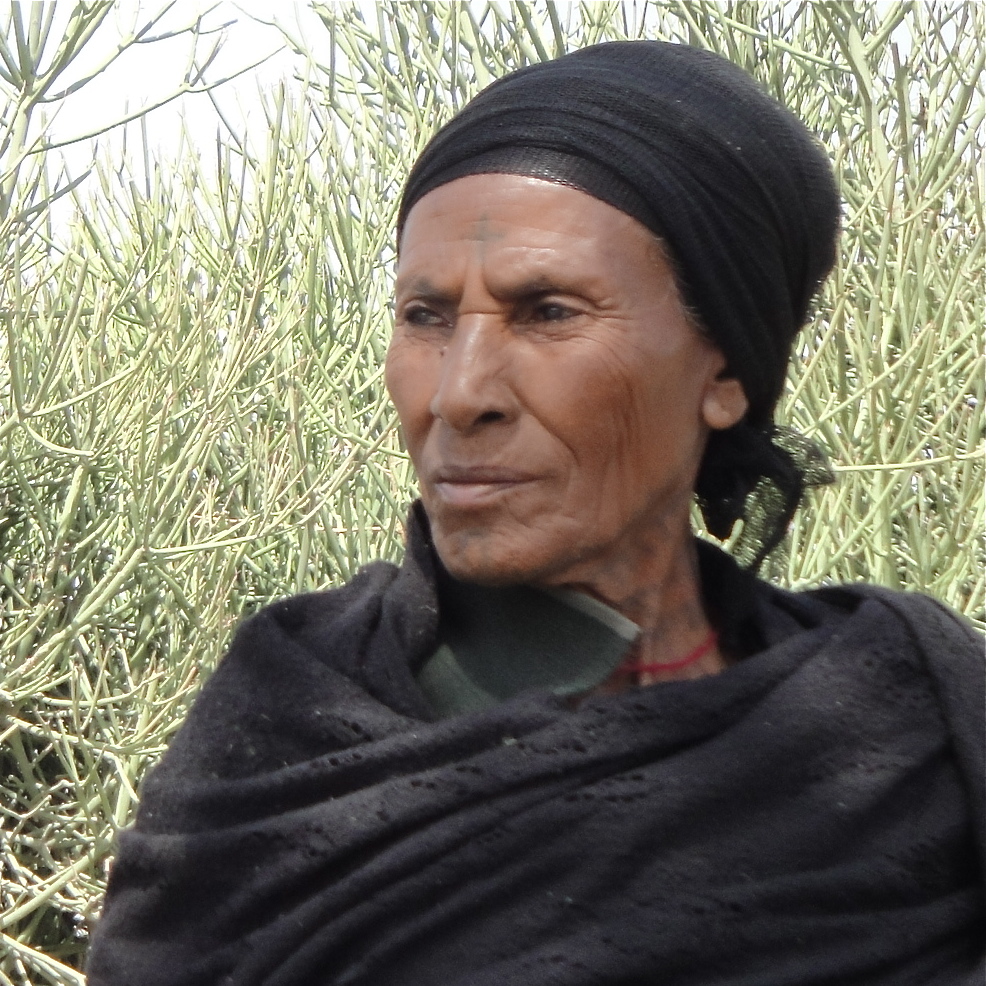
Si's 56-year old grandmother. She never gave up. She kept her promise to always protect the daughter of her beloved son.
The morning of the abduction one of Tsi’s friends came running to the grandmother’s house yelling, “They’ve taken Tsi. They’ve taken Tsi.” The grandmother heard these cries, fell to the ground and shouted, “No! No! This cannot be!”
She pulled herself up and immediately started walking to Tsi’s school. Her worst fears were confirmed. Tsi was not at the school. From there, seeking help from the only ones who could help her, she walked several more hours to the World Vision office in the capitol city of Addis Ababa. World Vision immediately broke into action. The police were contacted and an innovative plan was devised. The main perpetrator’s parents were put in jail hoping to draw out the man for capture.
While the plan was being carried out, Elders from Tsi’s village paid a visit to the World Vision office. They threatened the World Vision staff and warned them to cease all prosecution attempts. “Leave us alone. Stay out of our business. This is our tradition. This is how a man may get a wife.” The members of the World Vision staff were shocked. “What if this was your daughter who was being treated so shamefully and so violently. You would not want this happen to your daughter.”
They replied, “It is our way. We would not stop it.” The World Vision staff, though very frightened by the threats, did not back down. They relentlessly continued working with the police and the court system to see that this man was captured and brought to justice.
He soon got word that his parents were in jail and came up with a plan of his own. He forced Tsi to sign a paper stating that she had gone with him of her own free will and wanted to marry him. He then proceeded to take her to his parent’s house—another two days traveling on foot.
Upon their arrival at the parent’s house, the police arrested the man, put him in jail, and released the parents. Finally, the man was convicted and was given the maximum sentence of fifteen years in jail.
On that hot afternoon, sitting under the shade of an acacia tree in the front yard of Tsi’s grandmother’s house, we heard this story. In fact, we heard three versions of it. One from Esatu, the World Vision staff person who helped Tsi’s family through the entire ordeal, one from the grandmother’s and finally Tsi’s own account of her terrifying forty days. We were all brought to tears as the details unfolded.
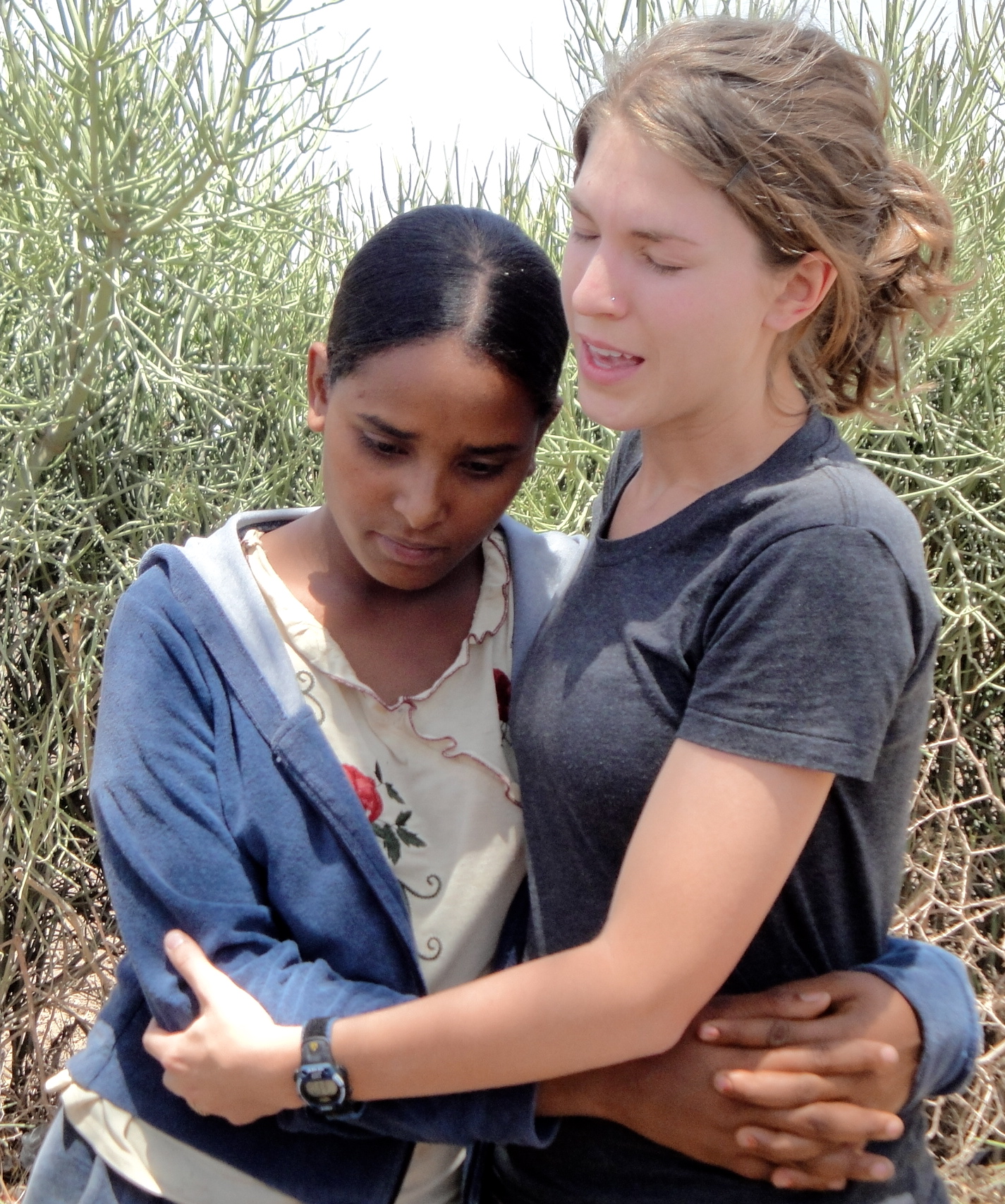
Jenna Lucado prays for Tsi and tells her that she is loved beyond measure by God.
After Tsi finished her story, Jenna Lucado asked how she was doing now and whether she had any dreams for her future. “So many people are harmed by these traditional practices,” she said. “I want to be an advocate for the rights of women and children. I want to be an attorney. [Remember, she’s only 14!] The most important thing to me now is my education.” This is making beauty of ashes. This is redemption.
World Vision also worked with Tsi’s school to ensure that she passed the seventh grade, even though she missed so many school days. They were able to convince the school to use her excellent mid-term grades for her final grades. This was no small feat since the schools in Ethiopia are very strict. She is currently a straight-A student in the eighth grade.
None of this would have been possible except for the fact that Tsi was a World Vision sponsored child. Without WV as her advocate, Tsi’s grandmother would have had no where to turn. She would have been powerless. With no living father or grandfather, there would have been no hope for justice. World Vision was there to demonstrate practically the love of Christ to the hopeless, powerless and fatherless.
I repeat my questions: What drives you to do what you do? Where do your passions come from? What situations have you endured that have become, or could become, a part of “your story”? What, in your life can be redeemed in order to spread the love of God to others? May Tsi and her grandmother be an inspiration to all of us.
Remember: Nothing is wasted.
(This story is remembered to the best of my ability from notes I took. Please forgive me if any facts are incorrect.)
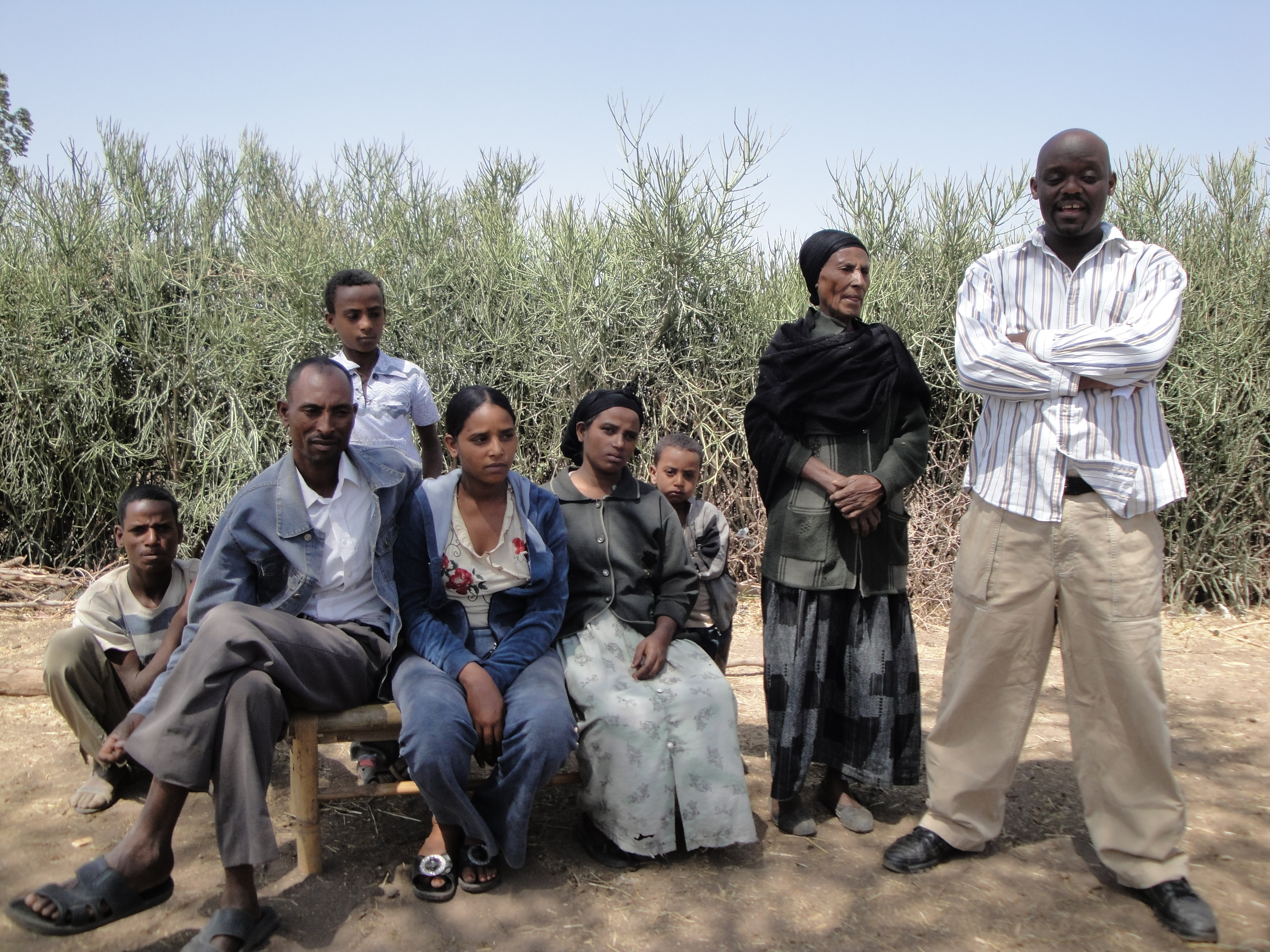
The telling of the story of Tsi. (Esatu, man on the right, is the World Vision friend & advocate of Tsi. He's also translating.
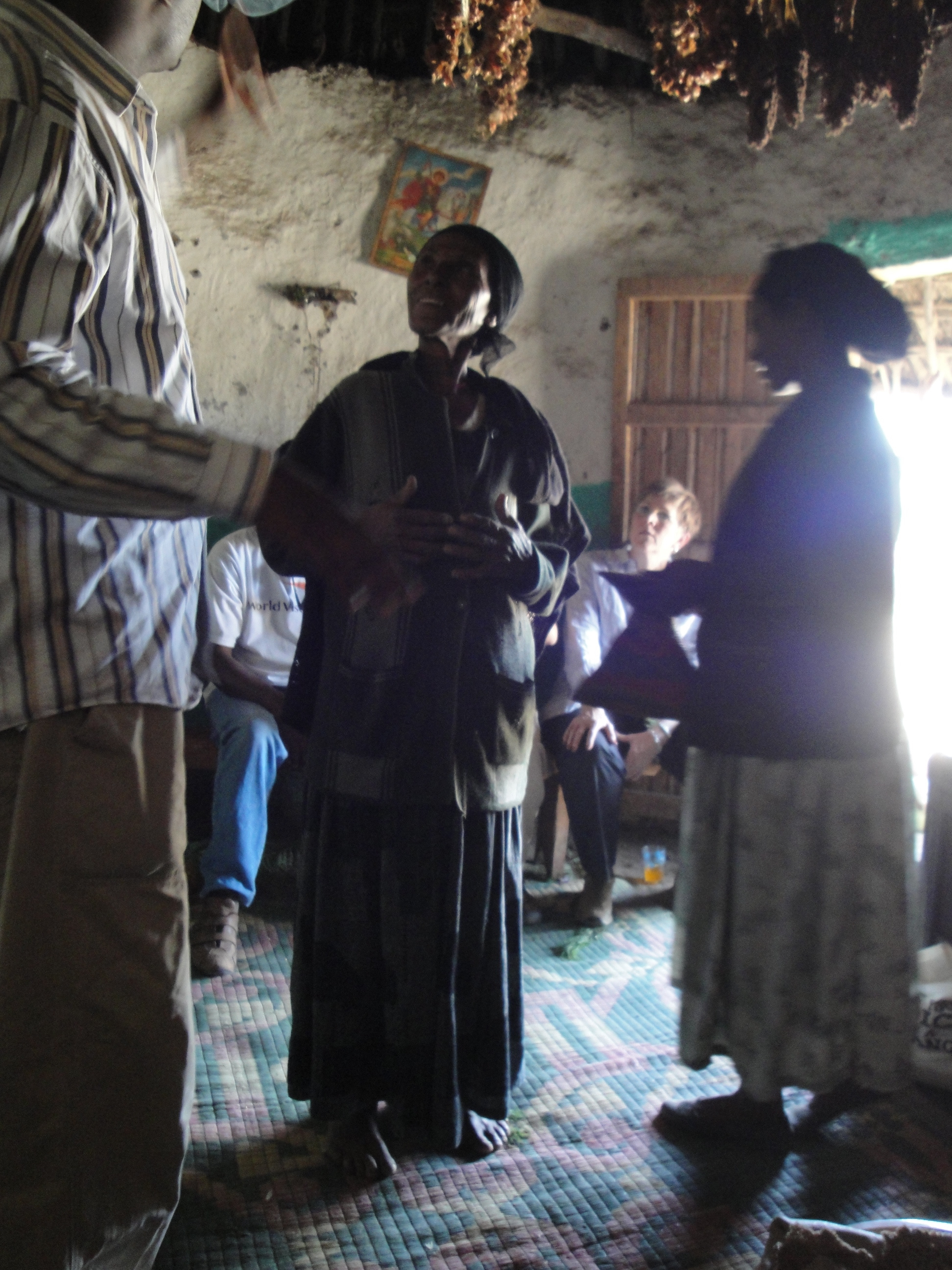
Tsi's grandmother invites us into her hut for coffee.
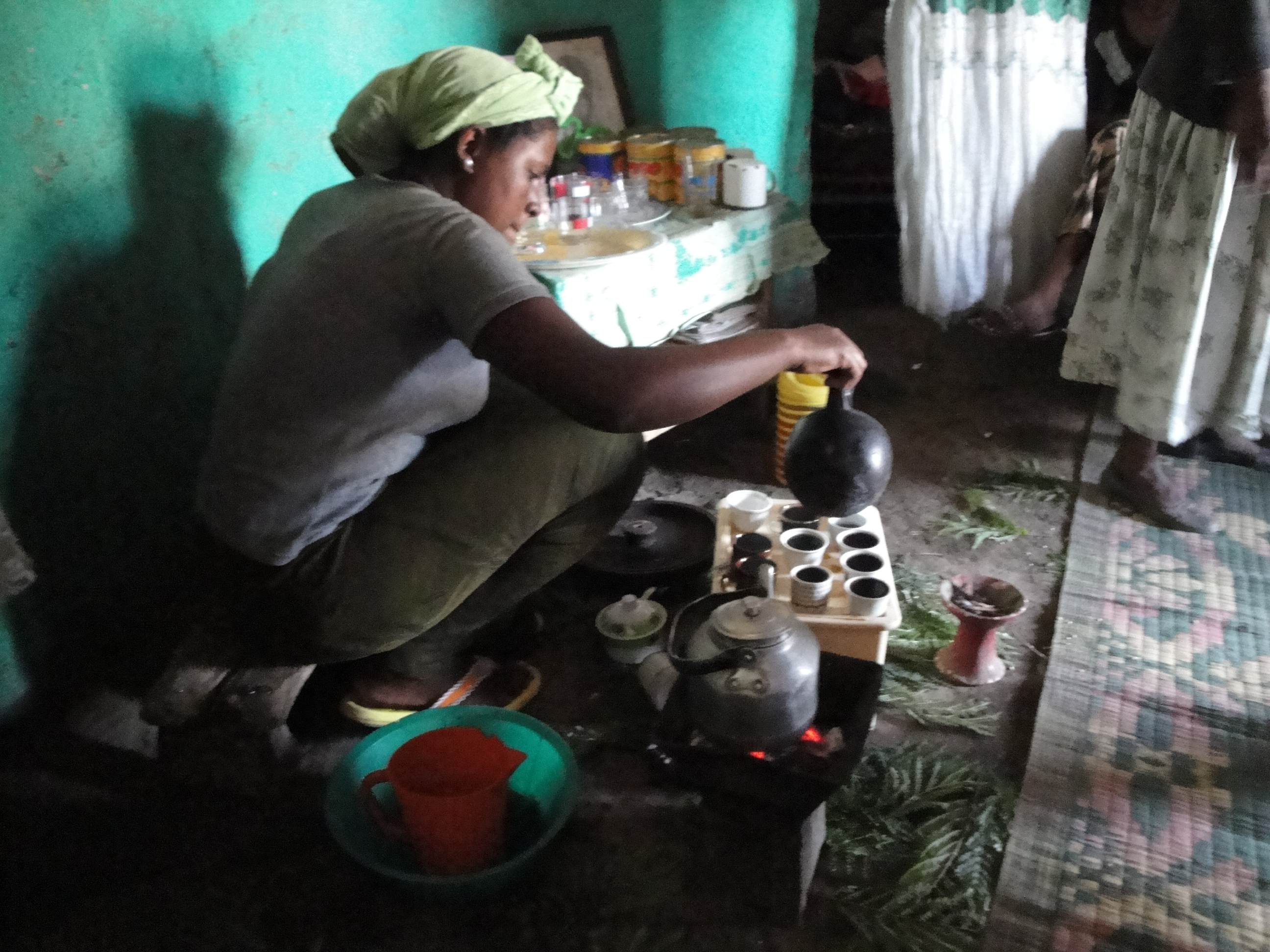
Serving one coffee is the ultimate expression of hospitality in Ethiopia.
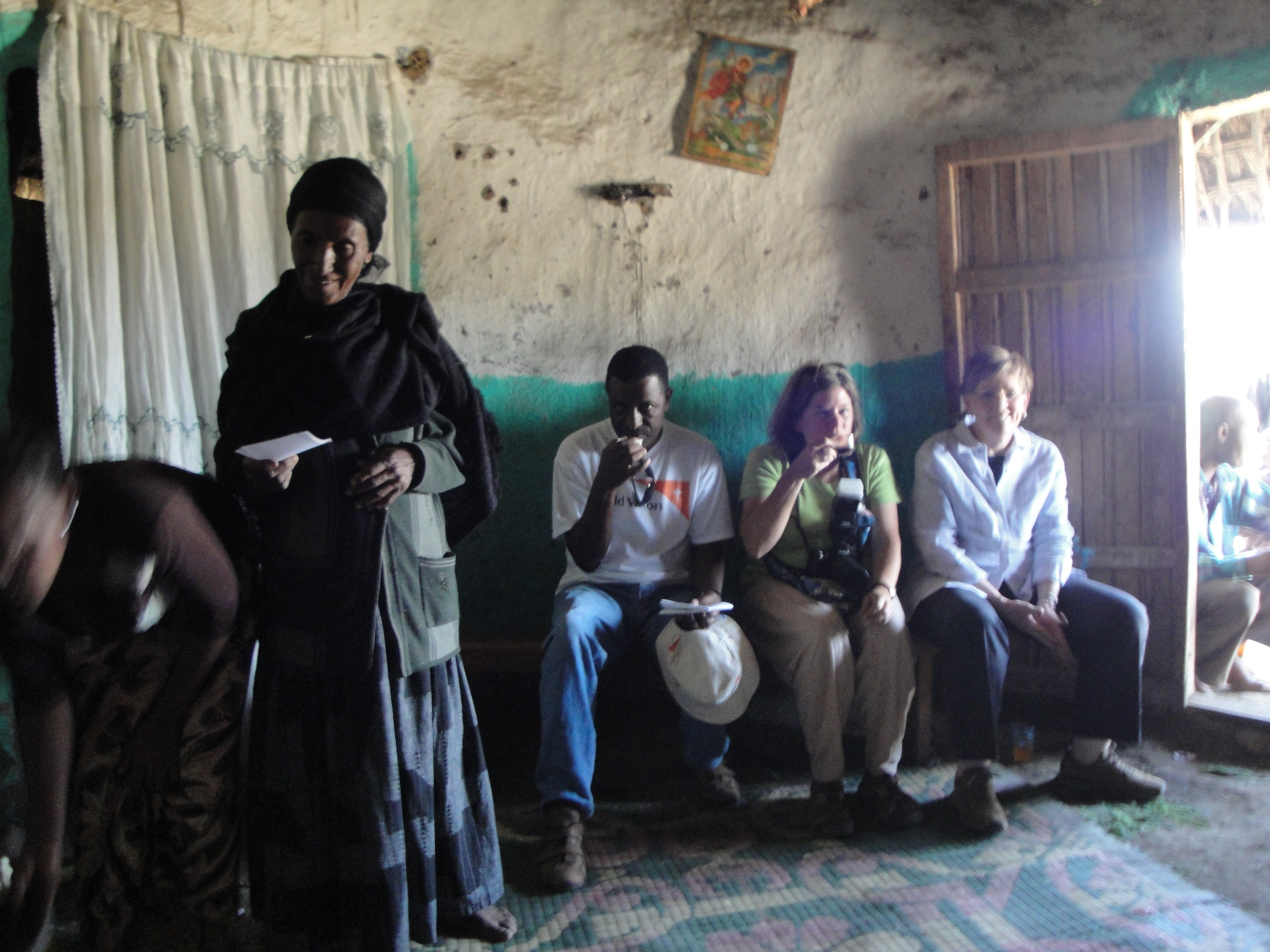
Everyone is seated on benches around the wall of Tsi's hut. (The coffee was really good!)


 May 31, 2009
May 31, 2009 







34 Responses to “Nothing Is Wasted: The Story Of Tsi”